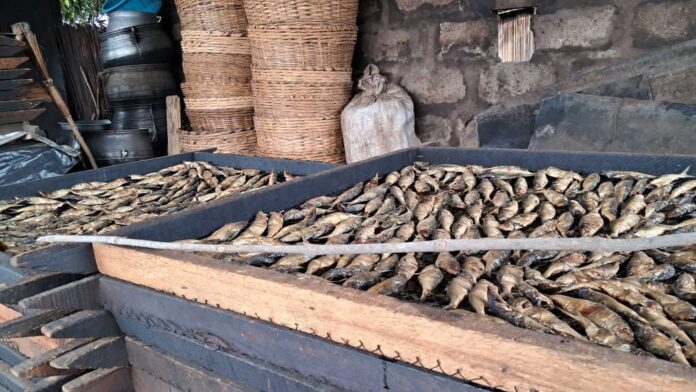In the heart of Dzelukope, a fishing community within the Keta Municipality, the acrid scent of wood smoke mingles with the sea breeze. Beneath a long canopy of drying racks and earthen ovens, a woman fans the embers with practiced ease — but the trays above her are barely filled.
“In the past, we could process five to ten basins of fish a day,” says Ruby Adukpo, a leader of the Volta Regional Fishmongers and Processors Association. “Now, if you see just one basin, it’s a good day.”
Ruby is one of thousands of women along Ghana’s coastline who depend on fish processing and trading — not just for income, but for food security, cultural continuity, and the survival of entire communities. But today, the women’s fires are going cold. Ghana’s small-scale fishing communities are in crisis, and the burden is falling heavily on the shoulders of women.
The causes are complex: overfishing, climate-induced changes in ocean currents, and, above all, the illegal incursions of industrial trawlers into nearshore waters — where artisanal fishers operate. Despite longstanding laws, enforcement has been weak, leaving fishers at the mercy of powerful foreign fleets.
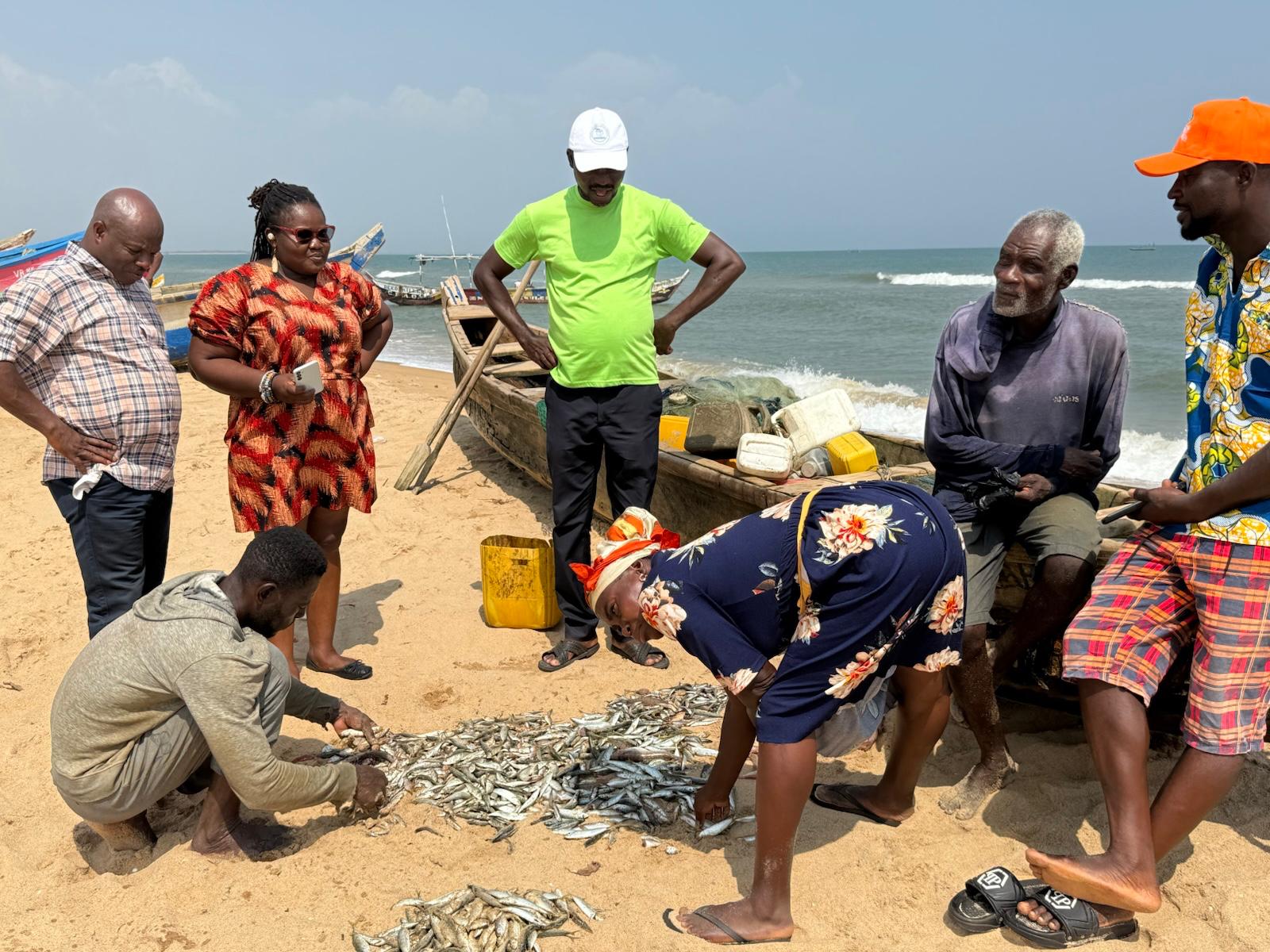
In response, Ghana passed a new Fisheries and Aquaculture Act, which includes the expansion of the Inshore Exclusive Zone (IEZ) from 6 to 12 nautical miles — a measure aimed at protecting artisanal fishers from industrial intrusion. But for Ruby and her colleagues, the victory remains only on paper.
“We are afraid the policy will be reversed,” she says. “We’ve heard that industrial players are lobbying to cancel it. But what about us? Who lobbies for the women?”
In towns like Anyanui, Salakope, Woe, and Dzelukope, the story repeats itself: fishmongers with reduced stock, traders losing clients, families unable to meet basic needs. Many women have been forced to abandon their traditional work altogether, switching to petty trade or migrating to Accra.
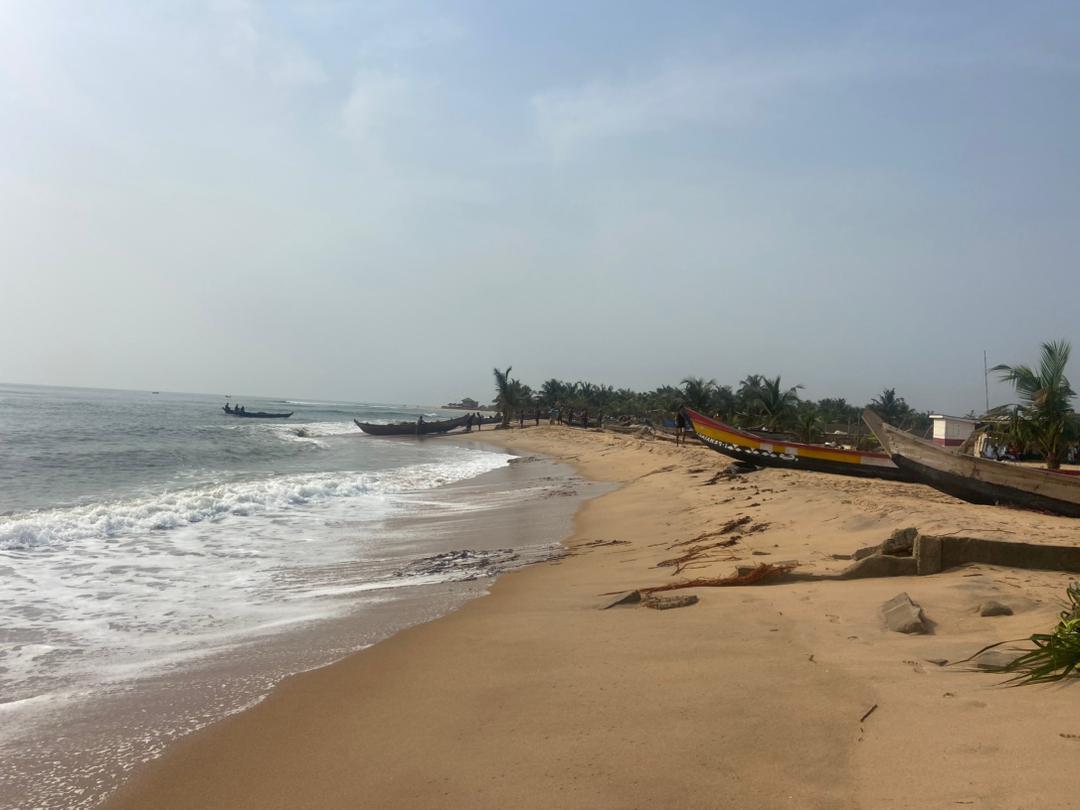
Elinam Gati, a 28-year-old second-generation fish processor in Salakope, shares her dilemma: “My mother taught me this trade, and I wanted to continue. But we can’t survive on passion. There is no fish.”
The issue is not only economic — it is generational and deeply cultural. Women are the backbone of Ghana’s fisheries post-harvest sector. They not only smoke and distribute the fish, but they control pricing, manage household economies, and preserve the very identity of coastal communities.
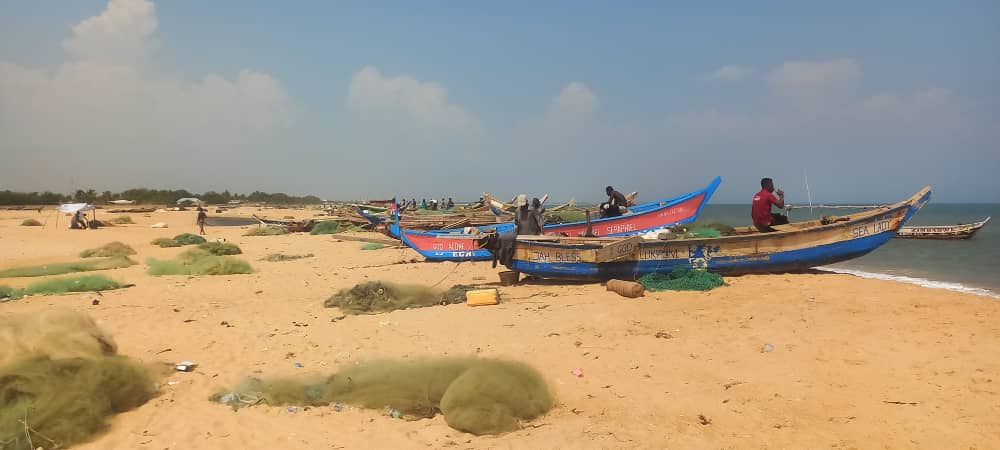
“When the fish disappear, the women disappear,” says Ruby. “And when we disappear, whole communities collapse.”
For many fishmongers and processors, the expanded IEZ is not just a policy — it is a promise of restoration. But promises alone are not enough.
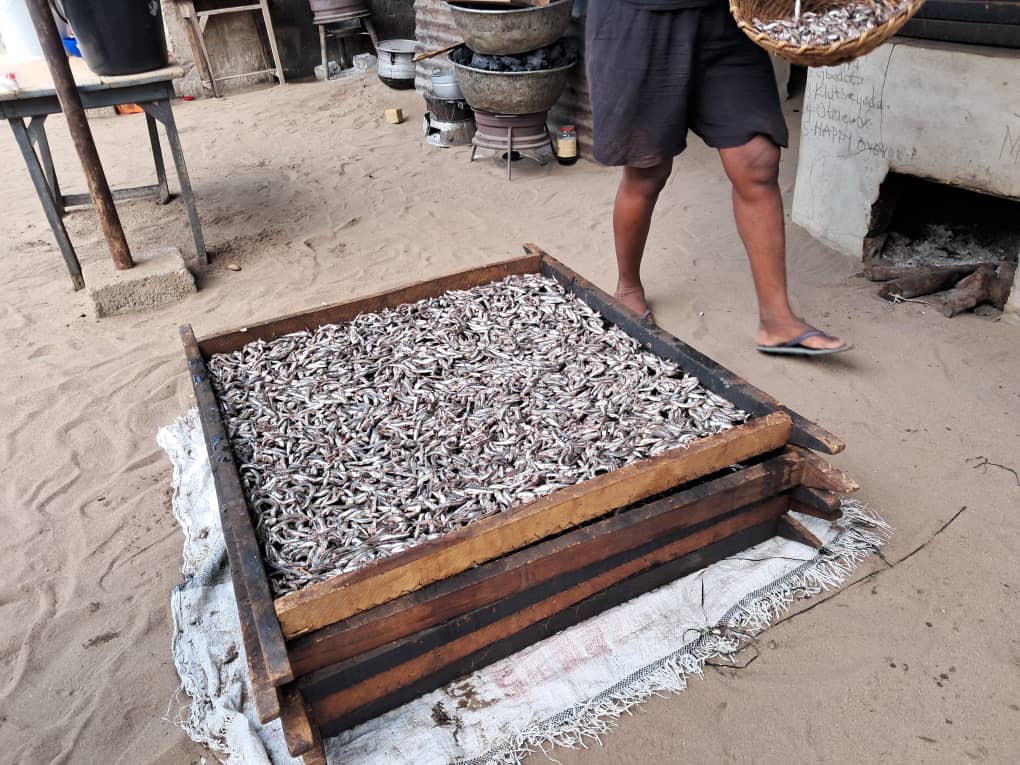
“Enforcement is key. We don’t need another law sitting on the shelf,” Ruby says. “We need the Navy, the Fisheries Commission, the government — all to act. If they fail, we all fail.”
In the smoke-filled sheds of the coast, the women wait — not for handouts, but for justice.
Source: Ivy Priscilla Setordjie
ALSO READ:

